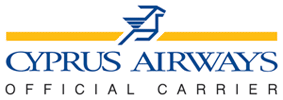Talk: |
Software Architectures for Task-Oriented Computing |
Abstract |
| Recent advances in ubiquitous computing and artificial intelligence have led
to a desire to better support user-oriented tasks by placing more
intelligence in the computing infrastructure. This infrastructure helps
mediate between computing resources and legacy applications on the one hand, and a user's high-level goals on the other hand. In this talk I survey recent research in developing software architectures to support these new capabilities. Key features of these architectures are the ability to interface with legacy applications, but still add considerable support for user tasks; the ability to incorporate machine learning so that the system adapts to the user over time; and the ability to cope with resource variability and user mobility. I outline some of the consequent software engineering challenges that arise in this setting. |
Bio: |
David Garlan is a Professor in the School of Computer Science at Carnegie Mellon University, where he leads
several research projects and is the Director of Professional Software Engineering Programs. His research
interests include:
Dr. Garlan is a member of Computer Science Department and the Institute for Software Research International in the School of Computer Science. |
| Personal Site http://www.cs.cmu.edu/~garlan/ |





